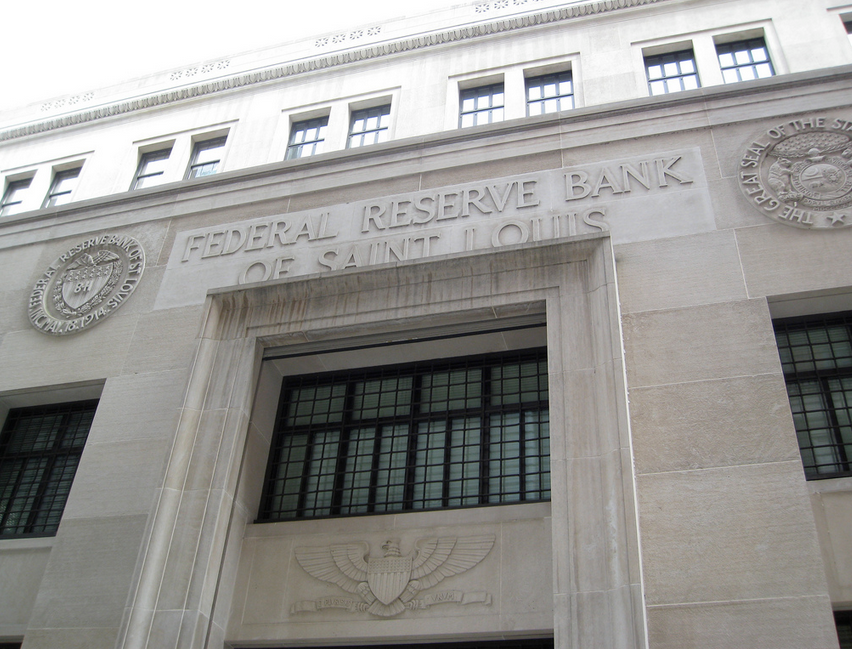Cryptocurrencies have been in the eye of the storm for a while now. To say the truth, they have been in the eye of multiple storms, to be quite exact. While China has been pushing with steady plans to add a digital FIAT currency and advance the country’s digitalisation bid.
In the midst of this development, it is worth asking if elsewhere in the world, central banking bodies will see cryptocurrencies and any digital currency for that matter as a viable source of investment and a possible exchange medium.
According to the St. Louis Federal Reserve in the United States, cryptocurrencies are not quite so reliable after all. The Reserve published an essay which lambasted the idea that cryptocurrencies can be supported by central banks if issued by them.
This goes against the grain of what China and its economy have been trying to achieve. The essay goes into detail to describe the so-called ‘no-case for central bank cryptocurrencies,’ and concludes a downbeat note, explaining that: “a central bank will not issue cryptocurrencies in the sense of a truly decentralized and permissionless asset that allows users to remain anonymous.”
The argument against Bitcoin and the fraternity of digital currencies is quite convincing. Authored by Aleksander Berentsen and Fabian Schar, this is the first serious head-and-head take on the elusive crypto gold stemming from St Louis and most importantly – from the State’s federal watchdog.
Bernstein and Schar have argued that in order for a cryptocurrency to take off, it would need to follow a three-dimensional model that cryptocurrencies just cannot fulfil off the top of their head, namely:
- Representation
- Transaction handling
- Money creation
Now, this is not entirely true in at least the third dimension, as smart contracts allow to create ecosystems that would be able to inject extra tokens upon a request. However, this entails difficulties, such as – how do you know that the new tokens are credible? With normal finances, there are vast networks of banks and regulators who systematically examine where money is coming from to ensure that everything is played by the book.
The paper itself states that “the distinguishing characteristic of cryptocurrencies is the decentralized nature of transaction handling, which enables users to remain anonymous and allows for permissionless access.”
The authors admit that a central banking body can easily launch its own brand of cryptocurrencies without running into any trouble, but they also postulate that whatever the nature of the cryptocurrency, it would still be dangerous and against the grain of the current financial system. Why? Simply because cryptocurrencies have little accountability and anything based on the blockchain will detract from the omnipotence of a bank as the final mediator of any financial transaction.
With this in mind, the authors consider that Bitcoin and its likely future iterations, if backed by a bank, may ultimately undermine the reputation of financial institutions and give rise to a further positiveness towards Bitcoin.
As we have talked before, and as events themselves have proven to us, cryptocurrencies are incredibly elusive and decentralized. Mainstream exchanges and companies have been falling quick victims to ill-meaning parties quite easily.
With this in mind, it may be worth it to push away from the idea that banks should embrace cryptocurrencies. Still, there are many good things that can be taken from banking and such and applied to cryptocurrencies as such.
For instance, KYS and AML practices will come well with vetting the source of any money. They can definitely be utilised in the crypto industry and by companies that intend to launch ICOs and develop bounty programs.
The St Lous Federal Reserve, however, believes that banks should steer clear of the business of ‘satisfying the demand for anonymous payments.’ For this particular reason, banks may be hurt to be seen as associates of murky payments.
Quite understandably, you will want to steer clear of anything that so much as suggests that your central or commercial bank is allowing third parties to access your funds, the authors argue in their essay.
The authors concluded by saying that: “History and current political reality show that, on the one hand, governments can be bad actors and, on the other hand, some citizens can be bad actors. The former justifies an anonymous currency to protect citizens from bad governments, while the later calls for transparency of all payments. The reality is in between, and for that reason, we welcome anonymous cryptocurrencies but also disagree with the view that the government should provide one.”
They are right to speculate about the future of banking and cryptocurrencies. Finances will play a huge part in determining how people will manage their funds in future. Allowing everyone to nosedive into the murky waters of crypto world may be ill-advised and it ought to be avoided at all costs and certainly at all times.



Comments (No)